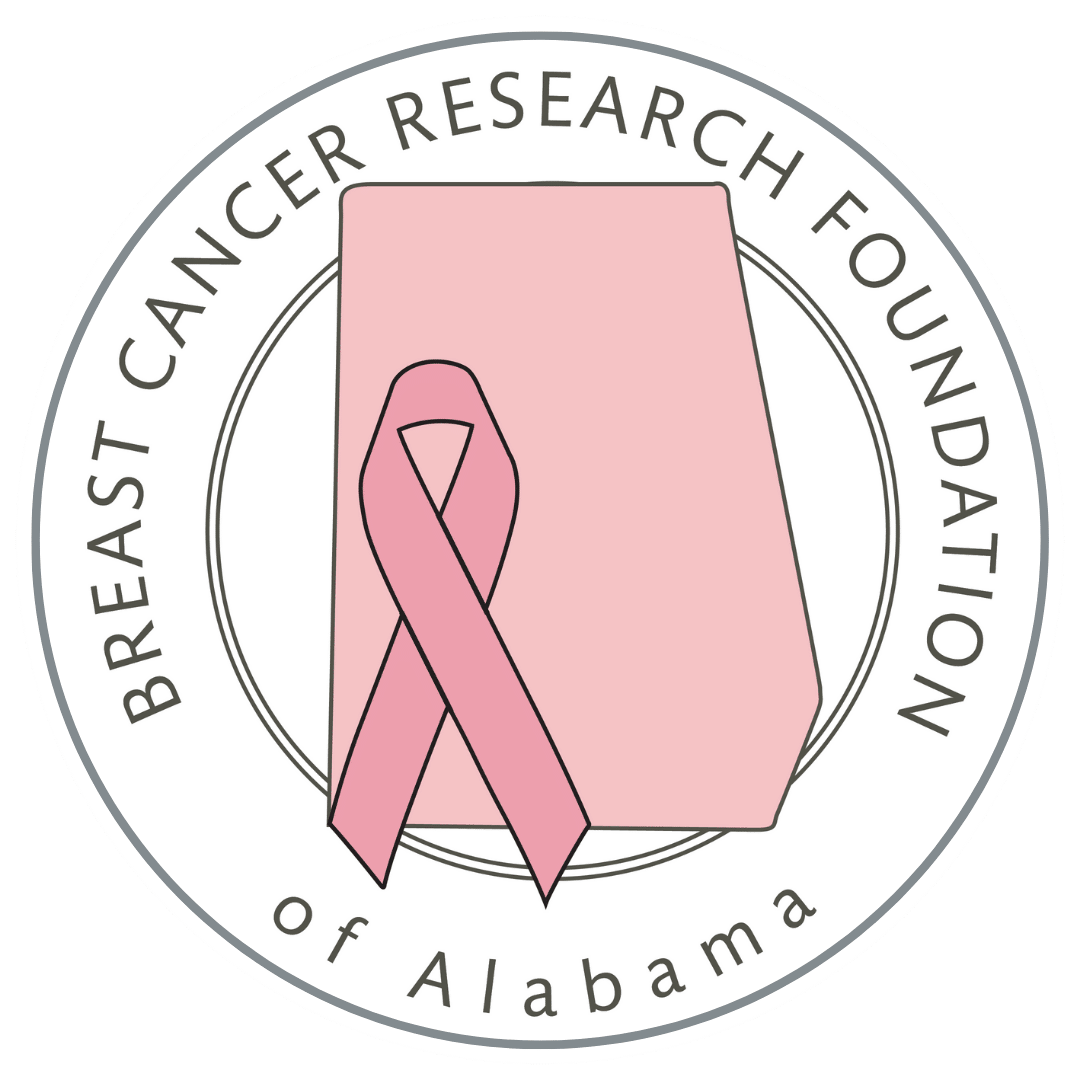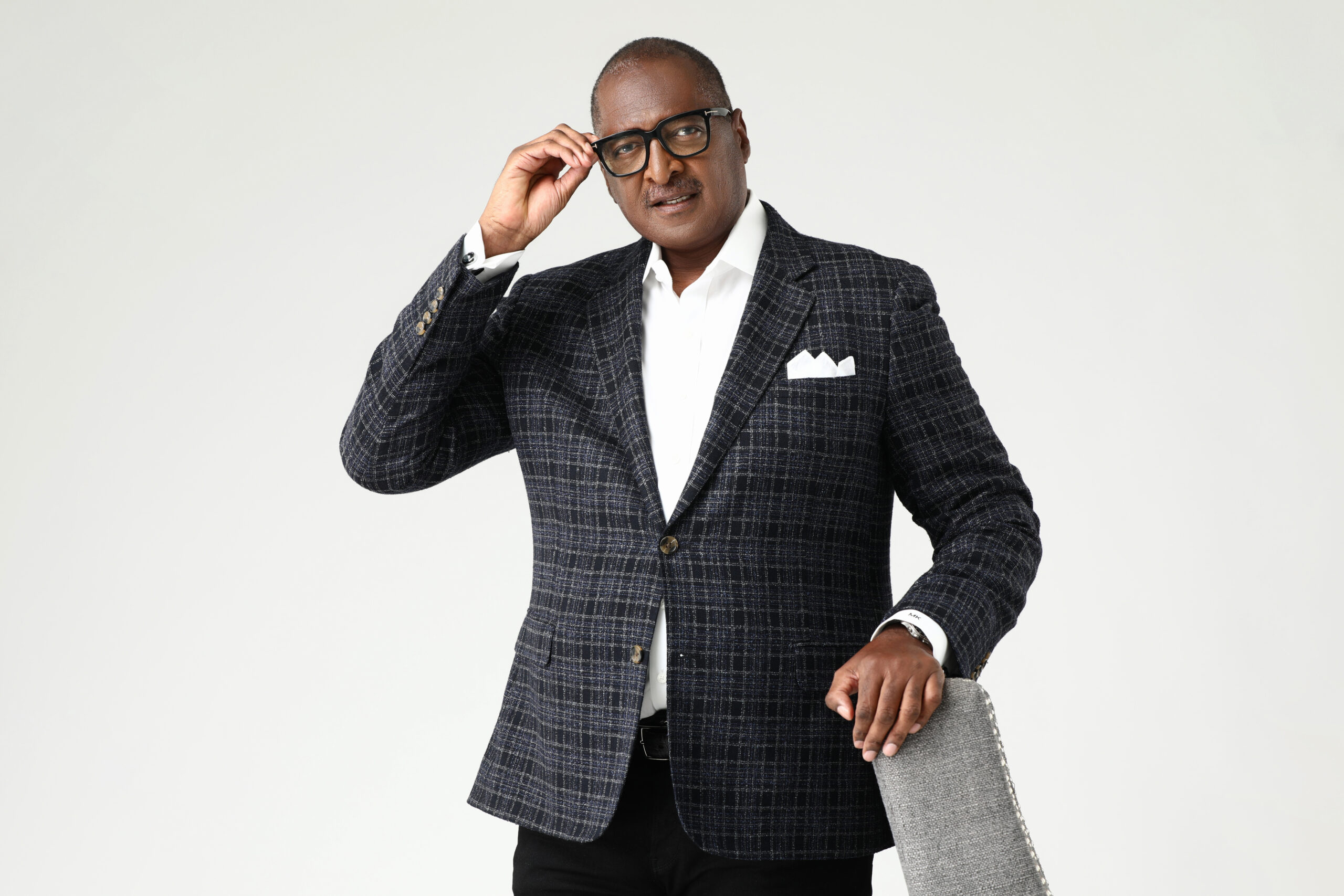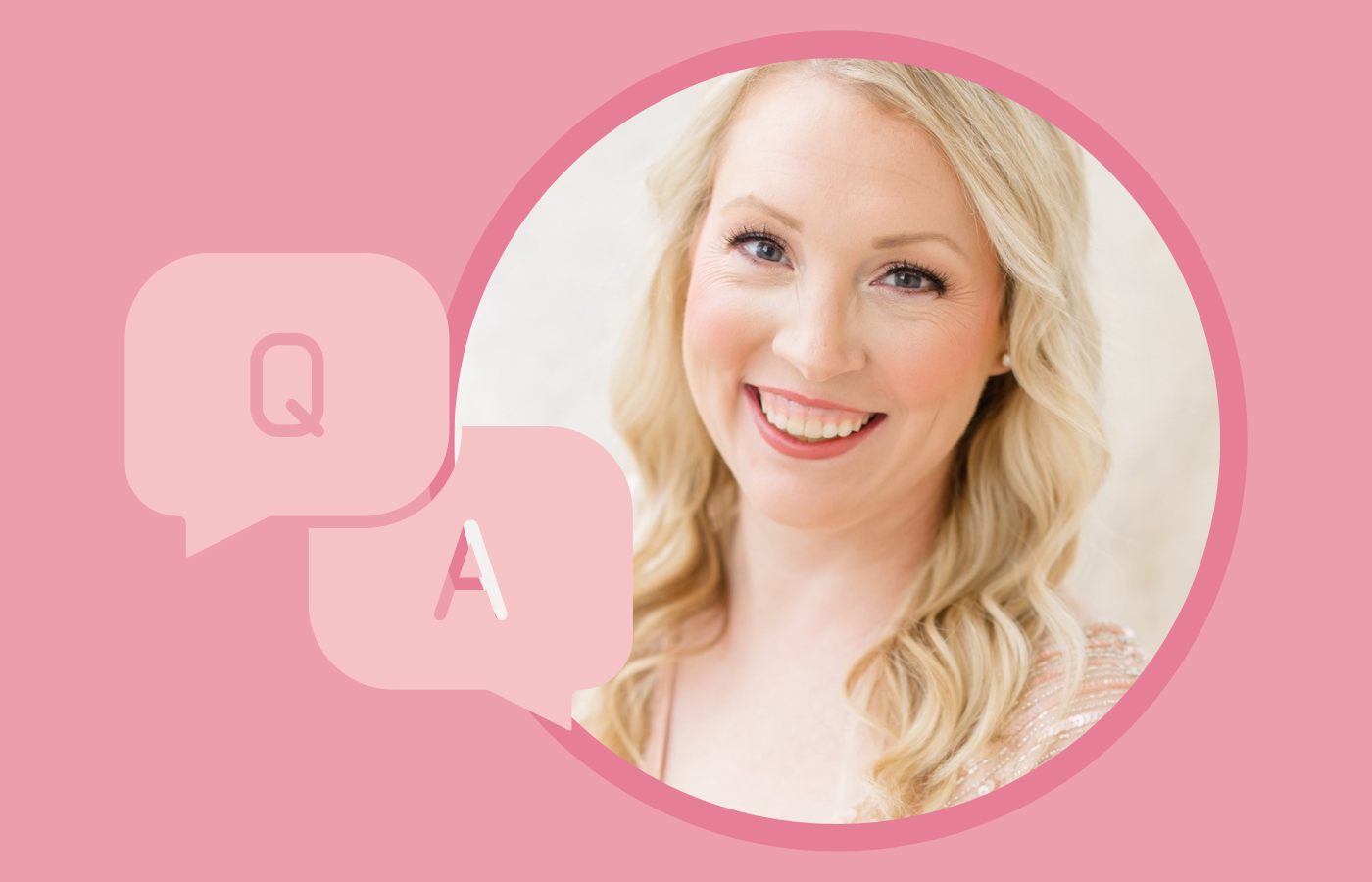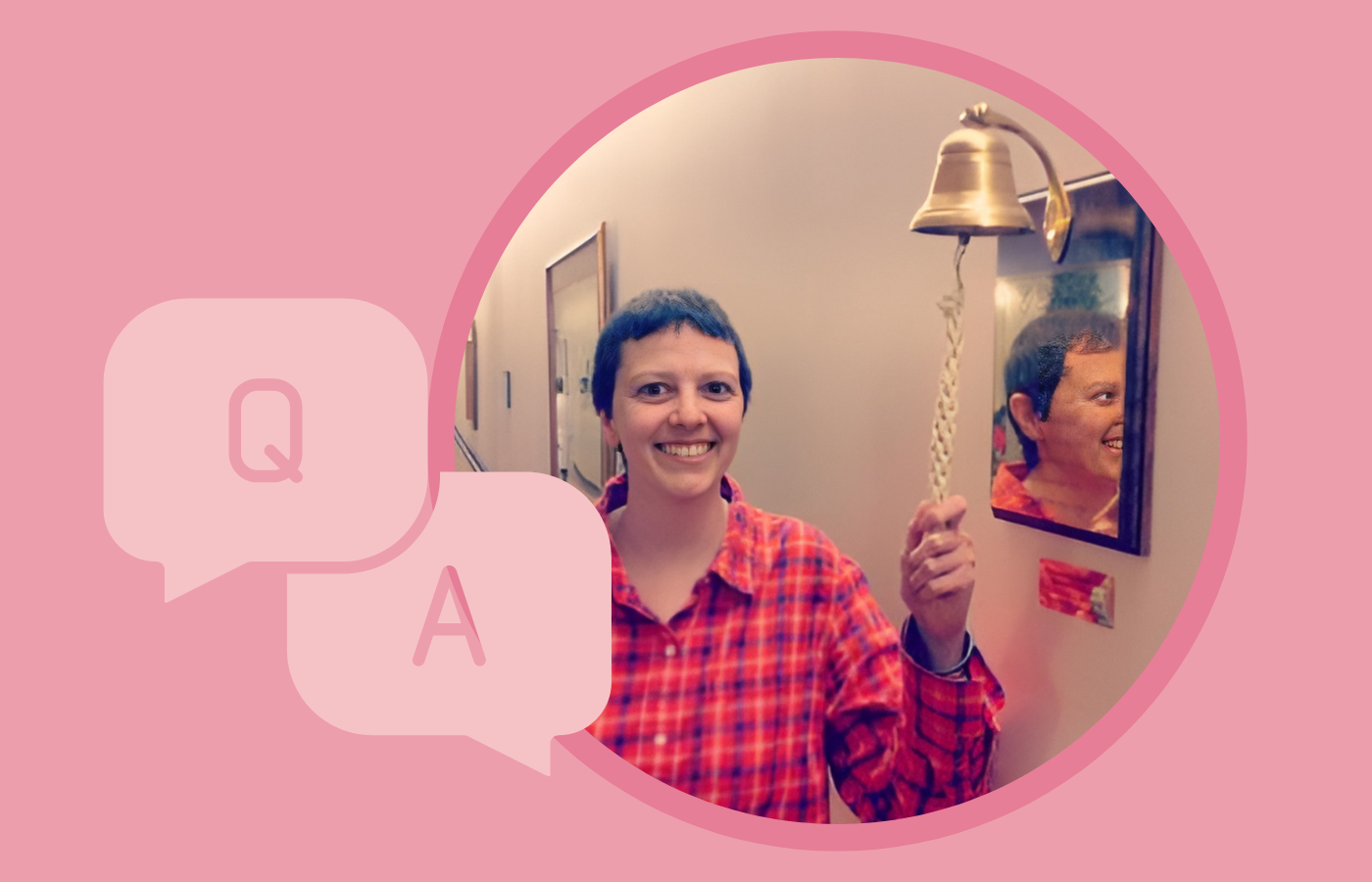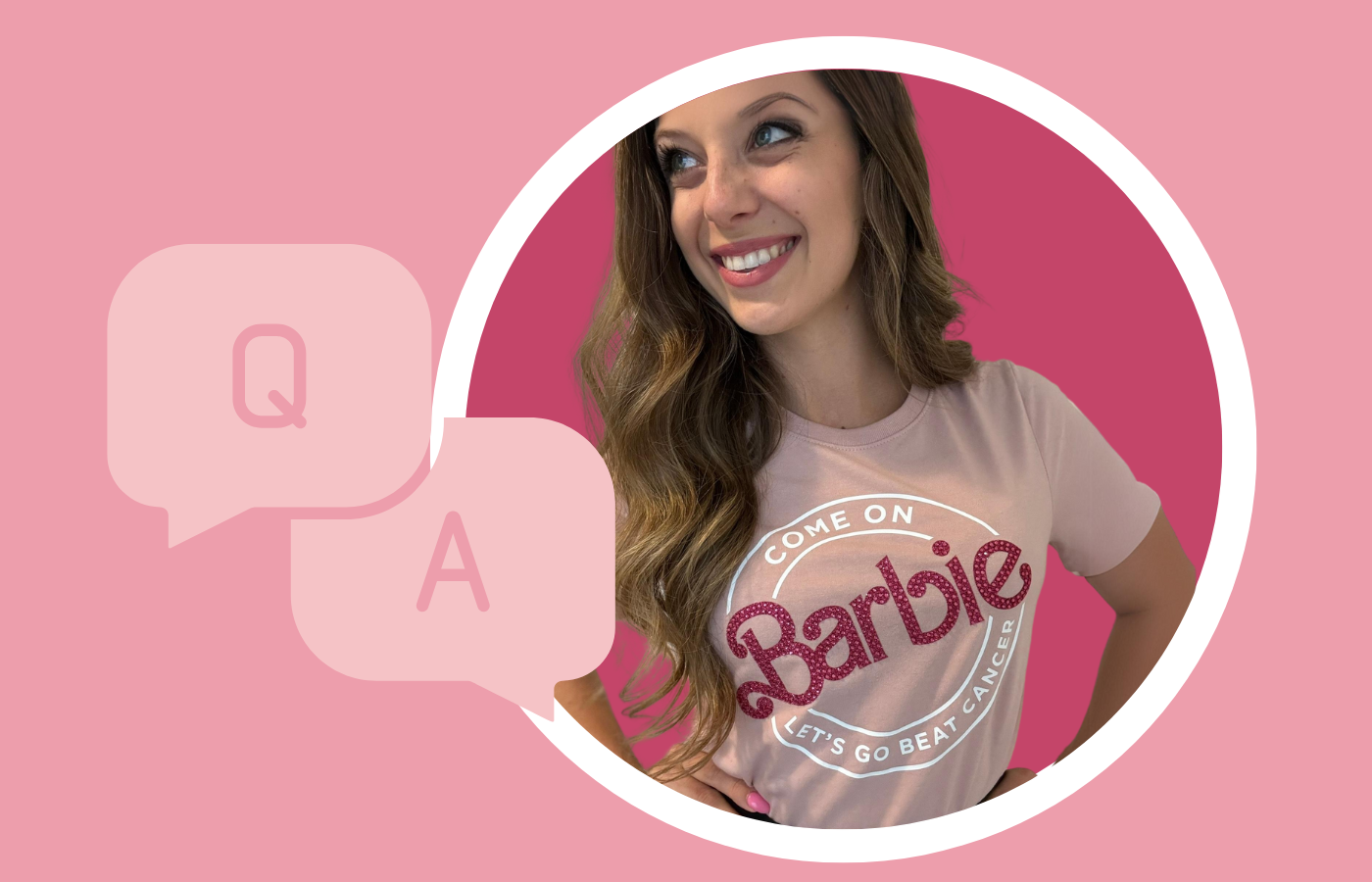Learning that her maternal aunt was diagnosed with breast cancer, Madeline took the initiative to get genetic testing that would lead to regular screenings which ultimately caught the Stage 1 Invasive Ductual Carcinoma at the age of 31 years old.
Read on to hear of her inspirational story of determination and advocacy.
BCRFA: Can you share with us your connection to breast cancer?
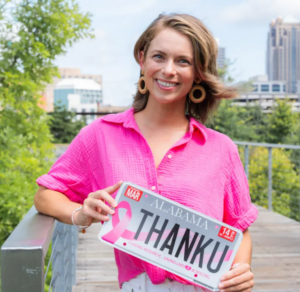
MP: In high school, my maternal aunt was diagnosed with breast cancer (in her 50s) and discovered that she had the BRCA1 genetic mutation. All the women on that side of the family were then tested, and the majority of us learned that we carried the same mutation, including my mother, sister, grandmother, and myself. My mother opted to have a prophylactic mastectomy, and my grandmother was diagnosed with early-stage breast cancer (thanks to screening) a few years later, in her 70s.
BCRFA: Can you please share the details of when and how you received your breast cancer diagnosis?
MP: Due to my BRCA mutation, I was advised to start screenings at age 25, which included a visit to the UAB High-Risk Breast Clinic every 6 months, plus an MRI or ultrasound/mammogram before each visit. I continued with these screenings from the age of 25 to 31 without any “scares”. In the Spring of 2022, my routine MRI revealed a suspicious area, prompting a biopsy which came back benign. However, in October of 2022, my routine mammogram showed the same area, slightly larger. My provider then ordered another mammogram and ultimately another biopsy. I was diagnosed with Stage 1 Invasive Ductal Carcinoma (IDC) on November 16, 2022, when I was 31 years old.
BCRFA: Before you initially went to the doctor had you done self-examinations?
MP: Honestly, I had never done any self-exams because I was still so young and being monitored so closely through my screenings every 6 months. However, my breast cancer was only caught via routine imaging (I never felt a lump or anything). This is why it is important to know your risk/family history in addition to self-exams because you may not actually have any symptoms until it’s a later stage of cancer.
BCRFA: Were you surprised by the breast cancer diagnosis?
MP: I was not necessarily surprised since I had always known that I was high-risk, but I was still shocked to be diagnosed so young/healthy. I think part of me felt like as long as I was “doing all the right things”, maybe I could prevent it. My plan was to start considering a prophylactic mastectomy around age 35, but I did not get that chance.
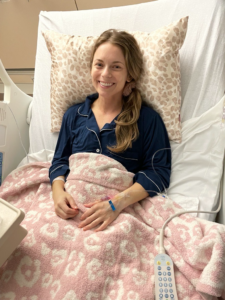
BCRFA: How did you feel about telling your family about your diagnosis?
MP: I think they were a little bit in disbelief because I was so young and always stayed on top of my screenings. I think they were also pretty scared at first because we didn’t know all the details of my diagnosis or what treatment I would need. My sister flew down from Virginia the day after I was diagnosed to attend my doctors’ appointments with me. She also handled all the communication/updates to our family because I was obviously very upset and stressed out. My whole family has been extremely supportive throughout everything, which I am very grateful for. I would also like to acknowledge my boyfriend, who took me on our first date just 9 days after I was diagnosed with breast cancer and has continued supporting me for the past two years.
BCRFA: What treatments did your doctors say you needed?
MP: I was seen at the UAB O’Neal Comprehensive Cancer Center, where I met with a medical oncologist, surgical oncologist, radiation oncologist, and a plastic surgeon. They all discussed my treatment options with me. I was given the option of a lumpectomy with radiation, but due to my family history, I chose to have a double mastectomy in February of 2023. The pathology from my surgery came back with an “Oncotype score” of 22, which was in the second-highest group for risk of recurrence. My oncologist recommended that I undergo chemotherapy to cut my risk of recurrence in half. I started chemo April 12, 2023 and finished June 14, 2023 (4 cycles spaced 3 weeks apart). I managed to retain about 30-40% of my hair by cold capping, which helps reduce hair loss during chemotherapy by cooling the scalp and protecting the hair follicles.
BCRFA: Did you work during treatment?
MP: I did continue working throughout treatment, taking about 4 weeks off after my double mastectomy. During chemo, I worked from home for a week after each treatment just to be safe since I was immunocompromised.
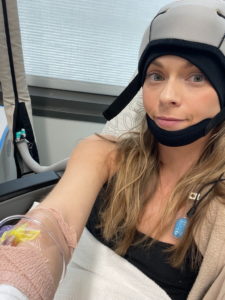
BCRFA: What was your biggest discovery or revelation after you were diagnosed?
MP: You can’t be too young or too healthy for breast cancer – it does not discriminate. It doesn’t care how successful you are or how good of a person you are or what stage of life you are in. It can happen to anyone at any time.
BCRFA: How did you feel when you had no more cancer?
MP: I was considered “cancer-free” after my double mastectomy, since I had all clear margins. The chemo was considered adjuvant, as a means to destroy any remaining cancer cells and help prevent recurrence. I was happy and proud of myself when I finished chemo, but I knew there was still a long road ahead with additional surgeries and medications. It took me several months to physically recover from chemo, and I still deal with side effects today. Those side effects can be mentally/emotionally draining as well, especially with the fear of recurrence always in the back of your mind.
BCRFA: What advice would you give to younger people about early detection and advocating for themselves?
MP: Ask questions about your family history and follow-up with genetic testing if there is a history of cancer (not just breast). This can be requested from your OBGYN or Primary Care Provider. Most insurances cover it now and, if not, your doctor can write a letter requesting approval. If you do wind up having a genetic predisposition to cancer, it’s not a death sentence – knowledge is power. You can meet with a genetic counselor to determine the best screening protocols to monitor your risk, and this can make the difference in Stage 1 cancer vs. Stage 4. However, you can have no family history or genetic mutations and still get cancer – this is where it is important to listen to your body and follow your gut instinct. If you think something is wrong, call your doctor ASAP. If they say you are too young, push for imaging & further testing. If they say no, find another doctor.
BCRFA: What advice would you offer to women who have recently received a breast cancer diagnosis?
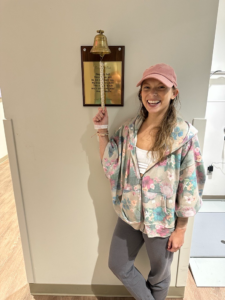
MP: You literally have to take it one day at a time. Some days you will feel okay, and others you will struggle to hold it together. You don’t have to “stay strong” – acknowledge your feelings and try to work through them as best you can (see a counselor if you have the means). Don’t be afraid to ask for help when you need it, whether it’s bringing you a meal or cleaning your house for you. Also, accept help when it is openly offered to you.
BCRFA: How are you today?
MP: I am okay. I won’t lie – having cancer changes your life forever. Some people say it changes their life for the better, but I don’t feel that way – my life was pretty great before (I am lucky). Even though I am out of active treatment, I am still dealing with side effects from my endocrine therapy (a combination of monthly shots and daily oral medication that puts my body into menopause since my breast cancer was hormone-receptor positive), which I will be on for the next 5-10 years. I also deal with depression from time-to-time and body image issues due to my hair loss and breast reconstruction complications. Overall, I am grateful to be where I am today and hopeful for continued healing. One thing that has really helped me is sharing my story and serving other cancer survivors and their families through organizations like the Junior Board at the Breast Cancer Research Foundation of Alabama and the Young Supports Board at the O’Neal Comprehensive Cancer Center at UAB. I encourage other survivors to get involved as well – it can really give you a sense of power and the opportunity to connect with others who can relate to your experience!
Thank you, Madeline!
